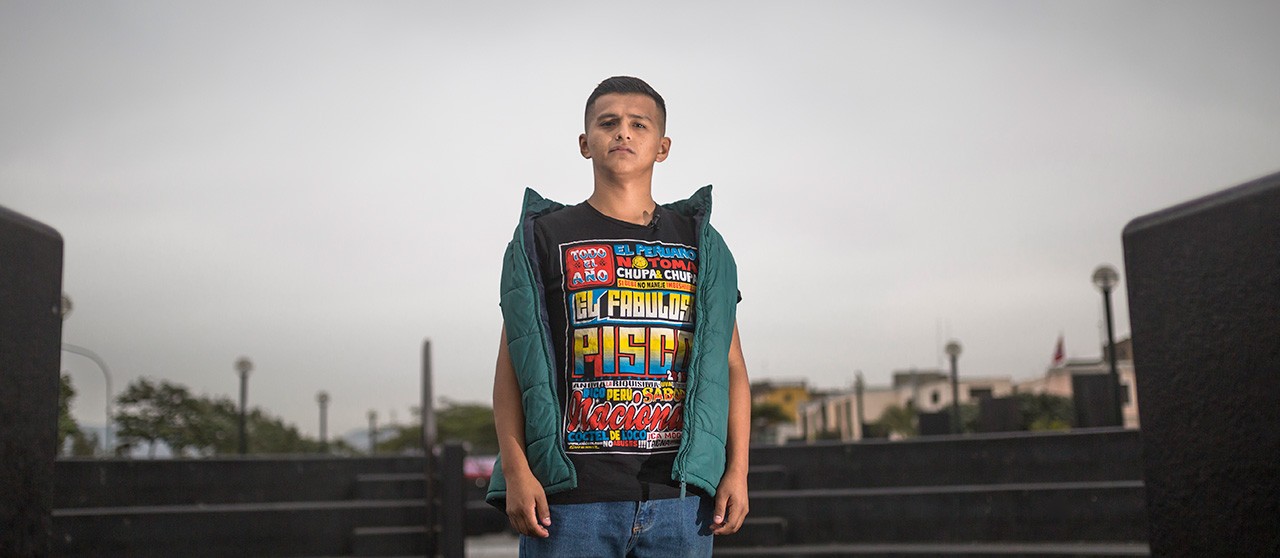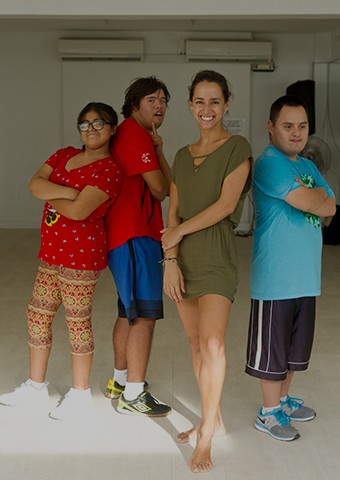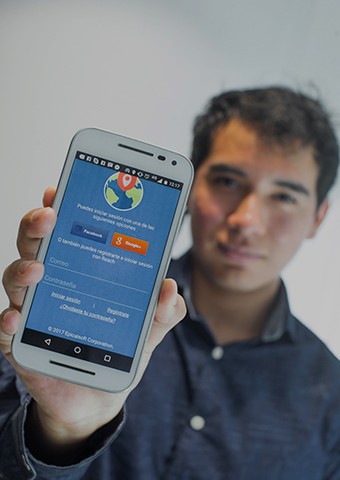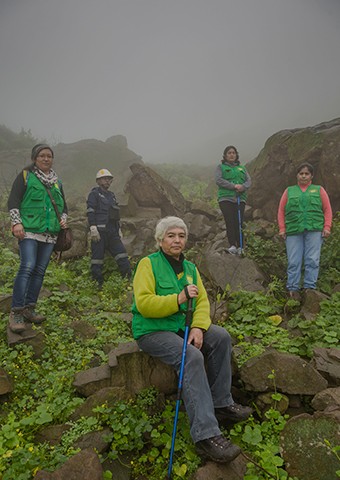“I would never have become a musician if I had not gone through so many difficult situations”
So you poured out you feelings through rap, but was there an audience?
Not at first, because I only made art to feel good. I rapped wherever I wanted: on the streets, at malls, at school. I did it to make this girl notice me (laughs)... I was in my third year of secondary school, and I would beat box (recreates the sound) as loud as possible for her to hear and get out of her classroom! When she did, I felt good... I like people to appreciate what I do. It makes me feel good.
You formed a band: Quinta Rima.
Yes, a group of friends I look up to.
You sang on buses.
Not then. That was brought by Colombians. The first time I saw kids rapping on buses was in San Juan de Lurigancho and they were Colombians. "Wow!" I thought. None of us had thought of using the buses to perform. Some of us started doing it, others did not. The experience of being a part of a band was pretty cool.
One of them proposed to include rhymes in Quechua.
Yes. They insisted that I got on a bus after class and rapped in Quechua. "Stop the bus!" I yelled and got on. We were at Abancay Avenue and some girl stared at me, asked for my number and three days later she wrote a big note about me on the Trome newspaper. It was crazy, everyone in college had read it. Two weeks later, a young lady contacted me and after a series of meetings she asked me to be the opening act for Uchpa and La Sarita in a concert at Peru’s Grand National Theatre.
That was in 2015.
Yes, 2015. I will never forget that event! I was a beginner, I was just getting better, finding my way...
You were already a soloist.
I had just become one… I had one track. Only one! That same day I invented others…
At that exact moment?
Yes (laughs)… I tried and came out cool.
Well, rap is also improvisation, is it not?
But improvisation in Quechua? It is hard even for me!
A key point is that the public understand. Do people get it?
At first, some told me: "Do not rap in Quechua, only two or three people will understand”. But the first track we got ⸺"Hip Hop Rurachkani"⸺ went viral and the band became more popular. "See? Let’s do more!" I was told no, but after the concert at the Grand National Theatre, I worked really hard.
You became independent.
I held on to rapping in Quechua, but for some time I gave up on it. Some members of my family were an obstacle: "You won’t make a living out of it!" They said I was a bum, and they broke my speaker...
What was your reaction?
For seven months I did nothing. I kept quiet and dedicated myself to study. But then I took off again. I had gathered momentum. And when someone tried to bring me down, I gained even more!
The came your album.
Yes! I would turn on the computer in silence at 4 am and stay up all night and morning making tracks.
Before it was common for a child of Quechua-speaking parents to be ashamed of the language, but that is not your case.
Not at all. I saw kids oppressed by society, by their own environment, and that made me angry. Why would that happen?! We are not abroad, we are in Peru! There should not be such contemptuous treatment here, we are all “cholos”!
Where does that view come from?
When I met rap, I became aware of the things I had experienced in the highlands. If it had not been for rap, they would have just gone away. When I merged rap with the Andean culture, the mix ignited this energy, this rebellion, this desire to transform… to follow somehow the work done by Arguedas, which is a very strong influence in my music.
You have made many young people get interested in Quechua. Thanks to you, in Huancayo, there is a teacher with several students today.
Well, yes! It was crazy. I never thought I would touch so many, and the workshop was full (laughs)... In Huancayo, I got on a bus to see the reaction of the “mamachas”, the old ladies of the town. I wanted to know what they thought about my music! It was amazing. I received the support of all the “mamachas”!
What was their reaction?
Their reaction was: five soles, ten soles, two soles (laughs)… I do not think anyone would give you money for something they did not like. This old lady grabbed my hand and said, "Keep it up, son. You’re doing great", and asked for one more song. The same thing happened to me when I was in Cusco. The bus driver and the ticket collector bought my CD and even stopped the car for me to sing one more. It was really, really crazy...
You have just been in Germany with Marca Peru. How was the experience before people who actually do not understand a word of your lyrics?
People there highly appreciate new things, and this fusion of hip hop with Andean instruments and music, as well as language, astounded them; and I was happy. They did not understand the words, but they did understand the show, because everything was theatrical.
You study Education and do rap, so you have a powerful tool to get to children.
Yes. But some kids will just not pay attention. They talk, they laugh, and I feel like I am talking to myself, even if I use methods to get their attention...
How old are they?
Mostly from secondary school. But once, at some elementary school, intensity was different. Kids really want to learn! I asked them, "Is Spanish a Peruvian language?” and I was surprised when everybody said it was not. "Which language is native to Peru?” "Quechua!" they answered, so I started singing, "Quechua / is resistance / Quechua...” and the kids sang together: "Resistance!” It was crazy. A friend recorded it. The kids were shouting: "Rapper, rapper!" There I realised that you have to work with some special teaching method that gets to children. With them you can work really well.
You are a rapper and a future teacher and love the Andean, you will be busy for quite a while!
Yes. I have a lot of ideas aimed at teaching Quechua through rap. I hope I can make them true. Even if I get no support from the Government, I will do it!





